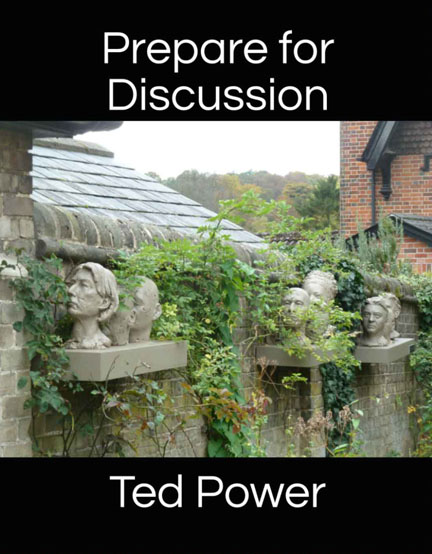
|
HOME |
Prepare for Discussion |
Extend Your Discussion |
|
EDUCATION |
Vocabulary |
Find the "odd one out". |
There may be more than one answer. Give your reasons.
|
|
A |
B |
C |
|
1. |
single sex |
mixed |
coeducational |
|
|
|
|
|
|
2. |
compulsory |
voluntary |
optional |
|
|
|
|
|
|
3. |
independent school |
public school |
state school |
|
|
|
|
|
|
4. |
nursery |
primary |
secondary |
|
|
|
|
|
|
5. |
grammar school |
comprehensive school |
non-selective school |
|
|
|
|
|
|
6. |
streaming |
mixed ability grouping |
ability grouping |
|
|
|
|
|
|
7. |
continuous assessment |
final examinations |
intelligence testing |
These are exercises used to cue core vocabulary and to define terms. They offer good starting points for lessons and should be used for oral work i.e. discussion in pairs or small groups. Given a choice of three different words or phrases, the task for learners is to use contrast and comparison (attribute analysis) to find the “Odd One Out”. Words can be related according to different aspects of meaning, so in some cases there will be more than one possible answer. The teacher then brings the class together and the answers are discussed. Note that there are not necessarily any wrong or right answers. It is up to the learner to give reasons for choosing the “Odd One Out”, though some reasons are more likely than others. Possible answers for the above example exercise are:
1A single sex is the "odd one out" because in the context of education mixed and coeducational both refer to the schooling of both girls and boys together.
2A compulsory is the "odd one out" because it means that you must do something. When something is voluntary or optional, you can choose to do it or not.
3C state school is the "odd one out" because in the UK both independent schools and public schools (such as Eton and Harrow) are fee-paying schools belonging to the private sector.
4A nursery is the "odd one out" because nursery school is voluntary while you have to go to primary and secondary school because the law says you must.
5A grammar school is the "odd one out" because entry depends on getting high marks in an exam. Comprehensive schools and non-selective schools do not test ability as a condition of entry.
6B mixed ability grouping is the "odd one out" because it means putting both intelligent and not so intelligent pupils together in the same class. Streaming and ability grouping mean putting pupils of similar ability in the same class.
7A continuous assessment is the "odd one out" since it means checking progress throughout a course of study as you go along. Final examinations and intelligence testing involve a more formal test at a given time.
Learners' receptive vocabulary will be a lot larger than their productive vocabulary. “Odd One Out” exercises are good for activating vocabulary since they present a limited frame of reference and immediately challenge everybody to participate. By using each set of exercises to focus on a single theme, interest can be developed in topics which learners may otherwise dismiss as not their favourite candidates for discussion.
The topics also have a Dictionary reference section found following the discussion questions. Here, some of the terms used as core vocabulary for each topic are defined. The definitions given are in the context of the discussion material and are chosen to facilitate the tasks. For example, learners who are finding the “odd one out” exercise difficult may refer to this section rather than using their own dictionaries. At the discussion question stage, these definitions are also designed to be useful.
| UK | US | DE | FR | ES | IT | NL | PL | SE | JP | CA | AU |
This book contains 28 "odd one out" exercises on the following topics: alternative beliefs, animal welfare, the arts, crime and punishment, cultural differences, economics, education, environment, fashion, health, holidays, language learning, male & female roles, marriage, the media, political systems, religion, rich world : poor world, science and technology, society, sport, traditions, transport, travel, violence, work and youth & old age.
The material should prove especially useful to learners intending to study in UK universities where they would be expected to participate in discussions covering a wide range of themes.
| UK | US | DE | FR | ES | IT | NL | PL | SE | JP | CA | AU |
This book contains 14 "odd one out" exercises on the following topics: art versus graffiti, climate change, community events, controlled parking zones, cost of living crisis, dogs, homes or open spaces, local history, neighbourhood disputes, the planning system, policing, refuse & recycling, residents associations and wildlife gardening.
The material is intended for learners of English at the upper-intermediate level and above who wish to improve their participation and performance in discussion of topics relevant to living in UK towns and cities.
Please take the links below for examples of the exercise types you will find in the books as well as my thoughts on the value of these exercises in teaching discussion